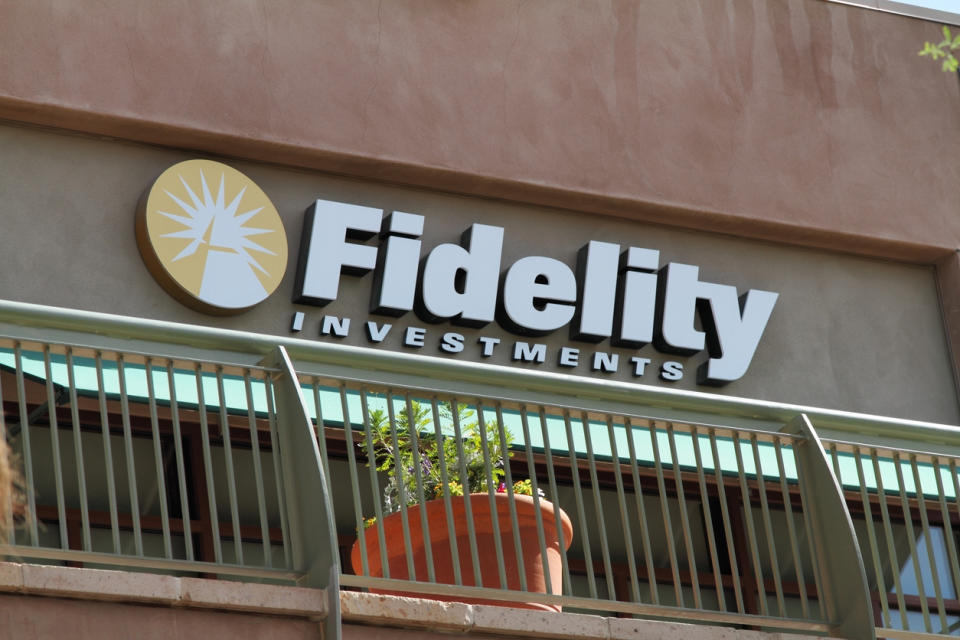Fidelity Plans 15% Platform Fee For ETF Issuers

Fresh details have emerged regarding Fidelity Investments' plan to add fees to its exchange-traded funds platform, which has sparked concerns among financial advisors and industry watchers that the added costs will spread across the industry.
Boston-based Fidelity, which has more than $1 trillion worth of ETF assets on its platform, is threatening to charge investors $100 for buying ETFs from issuers who refuse to pay an annual fee equal to 15% of fund expense ratios, a spokesperson confirmed. The spokesperson declined to comment otherwise.
Fidelity, which manages $69.1 billion in 67 exchange-traded funds, recently disclosed plans to introduce the $100 surcharge. It issued a memo March 28 to nine ETF issuers that had not yet agreed to the new fee arrangements.
Matt Markiewicz, managing director at AXS Investments in Port Chester, N.Y., represents one of the issuers named in the Fidelity memo. He said his firm has since agreed to sign on to Fidelity’s revenue sharing.
“We’ve gotten a couple calls from RIAs that use our products,” he said. "It has caused some confusion."
Still, Markiewicz downplayed the impact of the fee. AXS is a boutique ETF issuer with $1.1 billion under management, and Markiewicz said the 15% annual piece of ETF revenue “ends up being a lot less than you’d think.”
For perspective, if the fee were applied to the $64 million AXS Astoria Inflation Sensitive ETF (PPI), which charges 76 basis points, Fidelity would collect just over $700.
Sources familiar with the rollout of the new fee on ETF issuers say Fidelity is still working out the details on how it will track the fees it intends to collect, because the annualized fee is only expected to be applied to assets that move into ETFs after June 3.
The major brokerage firms have long charged asset managers a fee for “shelf space” to be recognized as preferred funds for building client portfolios. But this move by Fidelity is seen as new territory because it is less about paying for shelf space than it is paying to prevent investors from having to pay a $100 commission to buy an ETF. Fidelity disputes that the $100 charge is a commission because it is only charged on purchases and not on sales of ETFs.
“Unfortunately, pay-to-play arrangements have long been a dirty little secret in asset management,” said Nate Geraci, president and founder of The ETF Store financial advisory firm in Overland Park, Kansas.
“Platforms such as Fidelity are for-profit operations and can obviously charge for services as they see fit,” he said. “What needs to change is greater transparency around these arrangements and a level playing field where issuers pay the same revenue share regardless of their size.”
ETF issuers and financial advisors alike are watching closely to see how and where this is heading.
“This is what you get when you have very little competition in the big RIA space,” said Ed Butowsky, managing partner at the Plano, Texas advisory firm Chapwood Investments. “If Fidelity gets away with this, make no mistake, (competing RIA custodians) Schwab and Pershing will also do it."
Charles Schwab Corp., a major custodian, said the firm doesn't charge a commission. “The commission for all ETFs available on Schwab’s platform is $0 for U.S.-listed ETFs traded online.” BNY Mellon Pershing, another major custodian, didn't reply to a request for comment.
Jay Coulter, president of the RIA consulting firm Resilient Advisor, sees the new Fidelity fees as gaining momentum across the industry.
“I don’t think this issue is getting enough attention, because once the gate is open, other platforms are going to recognize the opportunity that’s there to start adding these fees,” he said.
